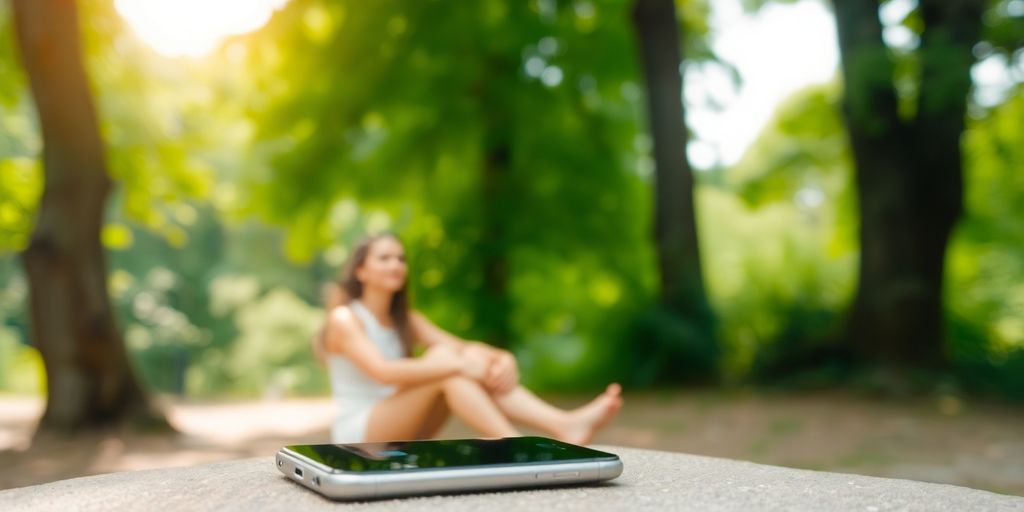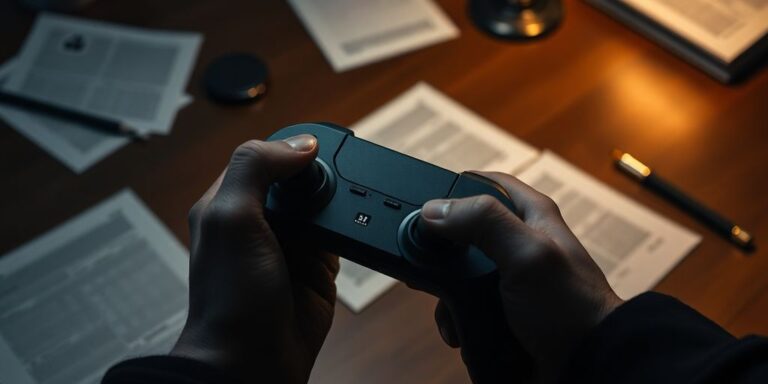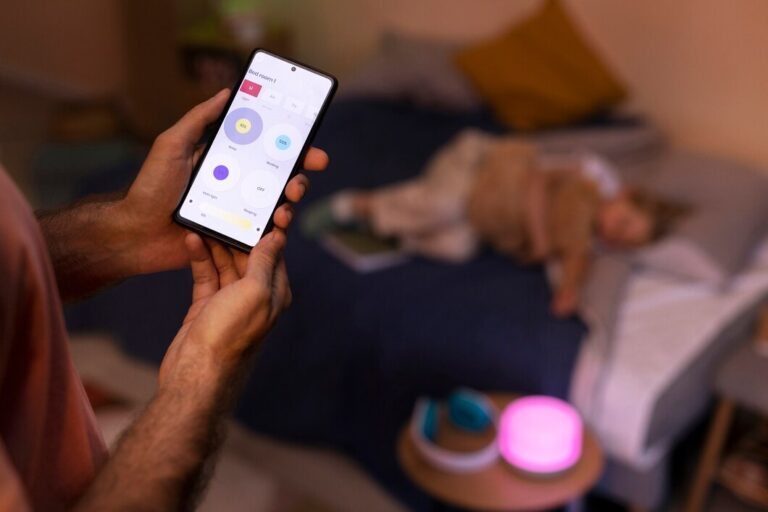
In a world grappling with digital burnout, a groundbreaking study reveals that unplugging for a weekend can lead to a significant 40% reduction in stress levels. The findings offer a compelling argument for the restorative power of disconnecting from our devices and reconnecting with the world around us.
A new study published in the Canadian Journal of Health & Wellness has found that a structured weekend digital detox can decrease perceived stress levels by as much as 40%. The research, which tracked individuals through a two-week program culminating in an unplugged weekend, provides some of the most compelling evidence to date on the immediate and substantial benefits of stepping away from our screens.
The study, led by a team of researchers at a prominent Canadian health institute, monitored participants’ stress markers, including self-reported stress levels and sleep quality. The results indicated a dramatic drop in stress for those who abstained from digital devices, such as smartphones, laptops, and social media, from Friday evening to Monday morning.
“The 40% reduction in stress is a powerful indicator of the impact that our ‘always-on’ culture has on our mental well-being,” said Dr. Eleanor Vance, the lead author of the study. “Our findings suggest that even a short, intentional break from digital stimuli can trigger significant psychological restoration.”
The Unplugged Weekend: A Prescription for Modern Stress
The concept of an “unplugged weekend” is gaining traction as a necessary antidote to the pressures of constant connectivity. With digital devices blurring the lines between work and personal life, the opportunities for mental downtime have become increasingly scarce.
This constant deluge of information and notifications keeps our nervous systems in a state of heightened alert, contributing to chronic stress, anxiety, and sleep disturbances.
The study highlights that the benefits of a digital detox extend beyond a simple feeling of relaxation. Participants reported improved sleep quality, increased focus, and a greater sense of connection with their families and friends. Many described a newfound awareness of their surroundings and a deeper appreciation for offline activities.
“At first, the silence was deafening,” one participant recounted. “I kept reaching for my phone out of habit. But by Saturday, I felt a sense of calm I haven’t experienced in years. I had a meaningful conversation with my partner without a single notification interrupting us.”
Digital Detox Statistics: A Sobering Reality
The need for such interventions is underscored by a growing body of digital detox statistics. Recent data reveals that the average person checks their phone over 150 times a day, and screen time has been steadily increasing across all age groups. This hyper-connectivity has been linked to a range of negative mental health outcomes.
Research has shown a strong correlation between high social media usage and increased rates of anxiety and depression. The constant comparison and the curated perfection often displayed on these platforms can lead to feelings of inadequacy and low self-esteem.
Furthermore, the blue light emitted from screens can interfere with the production of melatonin, the hormone that regulates sleep, leading to a vicious cycle of poor sleep and heightened stress.
The Science of Stress Reduction
The physiological mechanisms behind the stress-reducing effects of a digital detox are rooted in our hormonal responses. Constant digital stimulation can lead to elevated levels of cortisol, the body’s primary stress hormone. Chronically high cortisol levels are associated with a host of health problems, including high blood pressure, weight gain, and a weakened immune system.
By unplugging, we allow our cortisol levels to return to a baseline, promoting a sense of calm and well-being. Furthermore, engaging in activities like spending time in nature, exercising, or practicing mindfulness during a digital detox can further enhance these stress-reducing effects.
Expert Endorsements and Practical Advice
Mental health experts have lauded the findings of the new study, emphasizing the importance of setting boundaries with technology.
Dr. Marcus Thorne, a clinical psychologist specializing in stress management, commented,
This study provides a tangible and achievable strategy for individuals feeling overwhelmed by the demands of the digital world. A weekend detox is a manageable first step towards a healthier relationship with technology.
For those looking to embark on their own unplugged weekend, experts offer the following advice:
- Plan Ahead: Inform your friends and family of your intentions to disconnect to manage expectations.
- Prepare Offline Activities: Have a list of non-digital activities you enjoy, such as reading a book, going for a hike, or trying a new recipe.
- Create Tech-Free Zones: Designate certain areas of your home, like the bedroom, as screen-free zones to promote better sleep hygiene.
- Be Mindful of the ‘Why’: Remind yourself of your reasons for unplugging, whether it’s to reduce stress, improve relationships, or simply be more present.
- Start Small: If a full weekend feels daunting, begin with shorter periods of digital abstinence and gradually increase the duration.
As our lives become increasingly intertwined with technology, the ability to consciously disconnect is no longer a luxury but a vital skill for maintaining mental and emotional health. This new study offers a clear and quantifiable incentive to power down and rediscover the benefits of an unplugged life. The 40% reduction in stress is not just a statistic; it’s a compelling invitation to reclaim our time, attention, and well-being.






